 W
WField Marshal Harold Rupert Leofric George Alexander, 1st Earl Alexander of Tunis,, was a senior British Army officer who served with distinction in both the First World War and the Second World War and, afterwards, as Governor General of Canada, the 17th since Canadian Confederation.
 W
WGeoffrey Denis Erskine Russell, 4th Baron Ampthill, was a British hereditary peer and businessman, whose paternity and succession to the peerage were famously disputed in the "Ampthill baby case".
 W
WOliver Ridsdale Baldwin, 2nd Earl Baldwin of Bewdley, known as Viscount Corvedale from 1937 to 1947, was a British socialist politician who had a career at political odds with his father, the Conservative prime minister Stanley Baldwin.
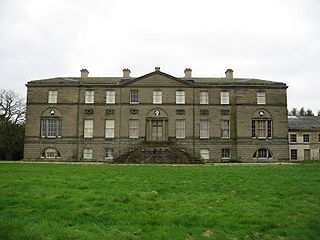 W
WThe Broughton, later Broughton-Delves, later Broughton Baronetcy, of Broughton in the County of Stafford, is a title in the Baronetage of England. It was created on 10 March 1661 for Sir Brian Broughton, of Broughton Hall, near Eccleshall, Staffordshire, High Sheriff of Staffordshire from 1660 to 1661 and the member of an ancient Staffordshire family.
 W
WFrancis Patrick Mary Browne, was a distinguished Irish Jesuit and a prolific photographer. His best known photographs are those of the RMS Titanic and its passengers and crew taken shortly before its sinking in 1912. He was decorated as a military chaplain during the First World War.
 W
WGeneral Sir Mark Alexander Popham Carleton-Smith, is a senior British Army officer who has previously served as Director Special Forces. He became Chief of the General Staff in June 2018, succeeding General Sir Nick Carter.
 W
WJames Dawson Chichester-Clark, Baron Moyola, PC, DL was the penultimate Prime Minister of Northern Ireland and eighth leader of the Ulster Unionist Party between 1969 and March 1971. He was Member of the Northern Ireland Parliament for South Londonderry for 12 years, beginning at the by-election to replace his grandmother Dehra Parker in 1960. He stopped being an MP when the Stormont Parliament was suspended and subsequently abolished with the introduction of Direct Rule by the British Government.
 W
WSir Smith Hill Child, 2nd Baronet, was an officer in the British Army and a Conservative Party politician.
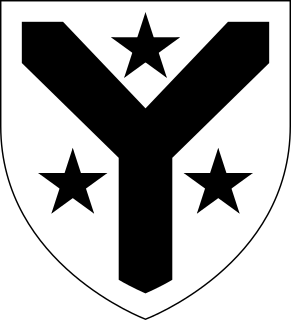 W
WFrederick William Henry Francis Conyngham, 7th Marquess Conyngham, known among friends and family as "Mount", was an Irish nobleman, landowner and soldier, who was styled Earl of Mount Charles until 1974.
 W
WMajor-General Vesey John Dawson, CVO was a British Army officer.
 W
WLt. Colonel John (Jean) Eugène de Salis, 8th Count de Salis, FRGS, Graf v. Salis-Soglio,, eldest son of Sir John Francis Charles de Salis, KCMG, CVO, 7th Count de Salis, of the Holy Roman Empire, of Lough Gur House, Monasteranenagh, Kilmallock, Co. Limerick, and the Grisons, Switzerland.
 W
WBrigadier General Charles FitzClarence VC was an Anglo-Irish recipient of the Victoria Cross, the highest and most prestigious award for gallantry in the face of the enemy that can be awarded to British and Commonwealth forces.
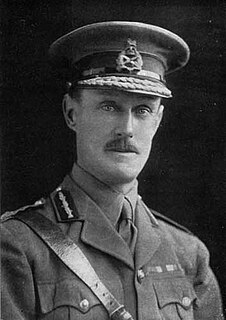 W
WGeneral Sir Alexander John Godley, was a senior British Army officer. He is best known for his role as commander of the New Zealand Expeditionary Force and II Anzac Corps during the First World War.
 W
WSir John Reginald Gorman CVO, CBE, MC, DL was between 1998 and 2003 an Ulster Unionist Party Member of the Legislative Assembly (MLA) for North Down. He was a Catholic Unionist.
 W
WShane Hugh Maryon Gough, 5th Viscount Gough is a peer of the United Kingdom. He was educated at Winchester College and Sandhurst. Son of Hugh William Gough, 4th Viscount Gough, MC, and Margaretta Elizabeth Maryon-Wilson. Lord Gough resides at the family seat, Keppoch House, near Dingwall, Scotland, but also has a London residence. His current employment is in London. He is unmarried, and there is currently no heir to the peerage or baronetcy.
 W
WBrigadier-General John Frederick Hepburn-Stuart-Forbes-Trefusis,, known as 'Jack Tre', was a British Army officer in World War I. At the time of his death he was the youngest Brigadier-General in the British Army.
 W
WColonel The Honourable Aubrey Nigel Henry Molyneux Herbert, of Pixton Park in Somerset and of Teversal, in Nottinghamshire, was a British soldier, diplomat, traveller, and intelligence officer associated with Albanian independence. He was twice offered the throne of Albania. From 1911 until his death he was a Conservative Member of Parliament. His eldest half-brother was George Herbert, 5th Earl of Carnarvon (1866–1923), the famous Egyptologist who discovered the tomb of Tutankhamun, who predeceased him by five months, by legend due to the "curse of the pharaohs". He suffered during most of his life from poor eyesight and was almost blind by his early 40s.
 W
WJean was the Grand Duke of Luxembourg from 1964 until his abdication in 2000. He was the first Grand Duke of Luxembourg of French agnatic descent.
 W
WValentine Edward Charles Browne, 6th Earl of Kenmare, styled Viscount Castlerosse from 1905 to 1941, was the Earl of Kenmare and the son of Valentine Browne, 5th Earl of Kenmare.
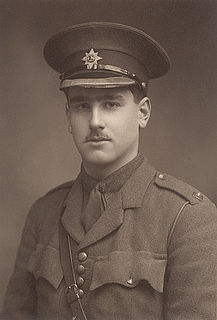 W
WJohn Kipling was the only son of British author Rudyard Kipling. In the First World War his father used his influence to get him an army commission, despite his having been decisively rejected for poor eyesight. His death at the Battle of Loos caused his family immense grief, and placed a great strain on the marriage as Kipling's wife had strongly opposed his enlisting.
 W
WLieutenant-Colonel Henry William Edmund Petty-Fitzmaurice, 6th Marquess of Lansdowne, DSO, MVO, styled Earl of Kerry until 1927, was a British soldier and politician.
 W
WCaptain Sir John Norman Ide Leslie, 4th Baronet, known locally as Jack Leslie, was the eldest son of Sir John Randolph Leslie, 3rd Baronet, and Marjorie Ide. He became the fourth baronet when his father died in 1971.
 W
WHugh John Lofting was an English author trained as a civil engineer, who created the classic children's literature character of Doctor Dolittle. It first appeared in illustrated letters to his children written by Lofting from the British Army trenches in World War I.
 W
WJames Neville Marshall VC, MC & Bar, was an English recipient of the Victoria Cross, the highest and most prestigious award for gallantry in the face of the enemy that can be awarded to British and Commonwealth forces.
 W
WGerald Spring Rice, 6th Baron Monteagle of Brandon was an Anglo-Irish British Army officer, banker and Conservative peer.
 W
WLieutenant-Colonel The Hon. George Henry Morris was the first commanding officer to lead an Irish Guards battalion into battle.
 W
WBrigadier-General George Colborne Nugent, (1864–1915) was a British Army officer who served on the staff during the Second Boer War, was closely involved in training the Territorial Force, and was killed in action in the Great War.
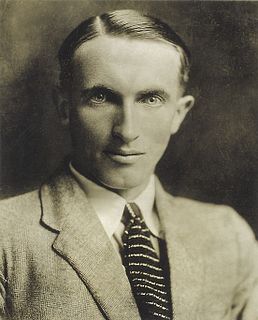 W
WLiam O'Flaherty was a major Irish novelist, short-story writer and must be ranked as one of the foremost socialist writers in the first part of the 20th century, writing about the common people's experience and from their perspective. Others are Seán O'Casey, Pádraic Ó Conaire, Peadar O'Donnell, Máirtín Ó Cadhain, and Seosamh Mac Grianna, all of them Irish language speakers who chose to write either in Irish or English.
 W
WTerence Marne O'Neill, Baron O'Neill of the Maine, PC (NI), was the fourth Prime Minister of Northern Ireland and leader (1963–1969) of the Ulster Unionist Party (UUP). A moderate unionist, who sought to reconcile the sectarian divisions in Northern Ireland society, he was Member of the Parliament of Northern Ireland for the Bannside constituency from 1946 until his resignation in January 1970; his successor in the House of Commons of Northern Ireland was Ian Paisley, while control of the UUP also passed to more hard-line elements.
 W
WPatrick Terence William Span Plunket, 7th Baron Plunket,, was Equerry to Queen Elizabeth II and Deputy Master of the Household of the Royal Household (1954–1975).
 W
WPeter Anthony Grayson Rawlinson, Baron Rawlinson of Ewell, was an English barrister, Conservative politician and author. He served as Member of Parliament for Epsom for 23 years, from 1955 to 1978, and held the offices of Solicitor General (1962–1964) and Attorney General for England and Wales (1970–1974) and for Northern Ireland (1972–1974). Had he been appointed Lord Chancellor, as seemed likely during the mid-1970s, he would have been the first Roman Catholic to hold that position since Thomas More in 1532.
 W
WWilliam Archer Redmond DSO was an Irish nationalist politician. He served as an MP in the House of Commons of the United Kingdom of Great Britain and Ireland as well as a Teachta Dála (TD) of Dáil Éireann. He was one of the few people to have served in both the House of Commons and in the Oireachtas.
 W
WCharles Henry Gordon-Lennox, 8th Duke of Richmond, 8th Duke of Lennox, 3rd Duke of Gordon, known as Lord Settrington 1870–1903, and as Earl of March 1903–1928, was a British Peer and politician.
 W
WWilliam Edward Parsons, 5th Earl of Rosse was an Irish peer and British Army officer. He was known as Lord Oxmantown until 1908.
 W
WSir Stephen George Tallents was a British civil servant and public relations expert.
 W
WArthur Claud Spencer Chichester, 4th Baron Templemore, was a British soldier and politician of Anglo-Irish descent.
 W
WBrigadier John Ormsby Evelyn Vandeleur, DSO and Bar, ON, usually known as Joe Vandeleur from his initials, was an Anglo-Irish British Army officer who served in the Second World War.
 W
WShaun Terence Young was a British film director and screenwriter best known for directing three James Bond films, including the first two films in the series, Dr. No (1962) and From Russia with Love (1963), as well as Thunderball (1965).